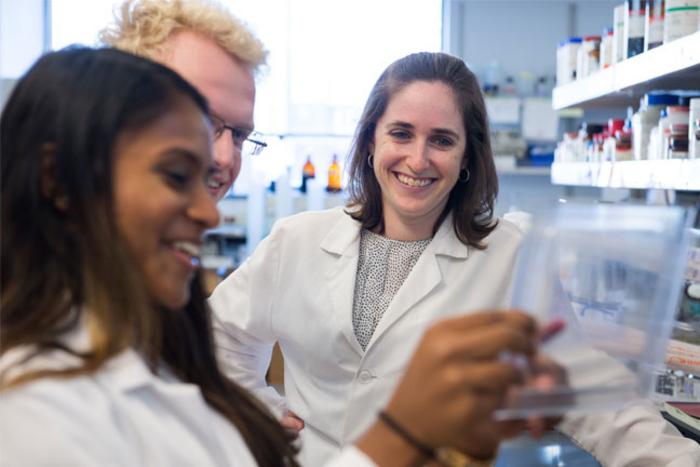With daylight savings time ending soon, we anticipate a change in the timing of daylight hours with the sunrise occurring earlier in the morning. Already, too many of us get far too little sleep, and disruptions to our circadian cycles like those caused by daylight savings time transitions may make us feel more than tired and out of whack. In the end, there is significant medical data that shows that sudden day/night-time changes may even make us sick.

Credit: Rensselaer Polytechnic Institute
With daylight savings time ending soon, we anticipate a change in the timing of daylight hours with the sunrise occurring earlier in the morning. Already, too many of us get far too little sleep, and disruptions to our circadian cycles like those caused by daylight savings time transitions may make us feel more than tired and out of whack. In the end, there is significant medical data that shows that sudden day/night-time changes may even make us sick.
Rensselaer Polytechnic Institute’s Jennifer Hurley, Ph.D., the Richard Baruch M.D. Career Development Chair and associate department head of biological sciences, studies the impact of circadian rhythms, the 24-hour rhythms that tune biology to the Earth’s day/night cycle, on life at the cellular level. Recently, Hurley, who is also a member of the Shirley Ann Jackson, Ph.D. Center for Biotechnology and Interdisciplinary Studies, was granted $2,116,990 over five years from the National Institutes of Health to continue her research. The grant, a Maximizing Investigators’ Research Award, is given to select, promising researchers with the goal of increasing productivity and breakthroughs by providing “greater stability and flexibility.”
“Disruptions to our circadian rhythms have been linked to serious medical conditions such as neurological disorders, cardiovascular disease, and cancer,” said Hurley. “Defining the molecular mechanisms that allow circadian rhythms to control our immunological response will help us to understand how disruptions in our circadian rhythms can affect our health and well-being.”
On the cellular level, circadian rhythms are controlled by a highly regulated, transcription-translation based negative feedback loop. It was long believed that transcription, the process by which DNA is copied into RNA, is what allowed the circadian clock to control biology. However, recent work from the Hurley lab showed that mechanisms beyond transcription also affected circadian biological control. However, how that process worked was unclear.
Now, scientists suspect that circadian regulation is accomplished more broadly and that translation (the process by which RNA is copied into proteins) also plays a role. With this grant, Hurley and her team will explore the extent of circadian post-transcriptional regulation, including the mechanistic underpinnings.
“We all understand the need for sleep because we know how it feels to be sleep-deprived, or we’ve at least experienced jet lag,” said Curt Breneman, Ph.D., dean of the Rensselaer School of Science. “With our modern lifestyles, disruptions in sleep cycles are commonplace. However, these disruptions may have a further-reaching effect on our health than most people realize. Dr. Hurley’s research is critical to understanding the science behind the impacts of circadian disruption so that in the future, negative health impacts may be mitigated.”
About Rensselaer Polytechnic Institute:
Founded in 1824, Rensselaer Polytechnic Institute is America’s first technological research university. Rensselaer encompasses five schools, over 30 research centers, more than 140 academic programs including 25 new programs, and a dynamic community made up of over 6,800 students and 110,000 living alumni. Rensselaer faculty and alumni include upwards of 155 National Academy members, six members of the National Inventors Hall of Fame, six National Medal of Technology winners, five National Medal of Science winners, and a Nobel Prize winner in Physics. With nearly 200 years of experience advancing scientific and technological knowledge, Rensselaer remains focused on addressing global challenges with a spirit of ingenuity and collaboration. To learn more, please visit www.rpi.edu.
Contact:
Katie Malatino
Sr. Communications Specialist
[email protected]
838-240-5691
For general inquiries: [email protected]
Visit the Rensselaer research and discovery blog: https://everydaymatters.rpi.edu/
Follow us on Twitter: @RPINews
###




